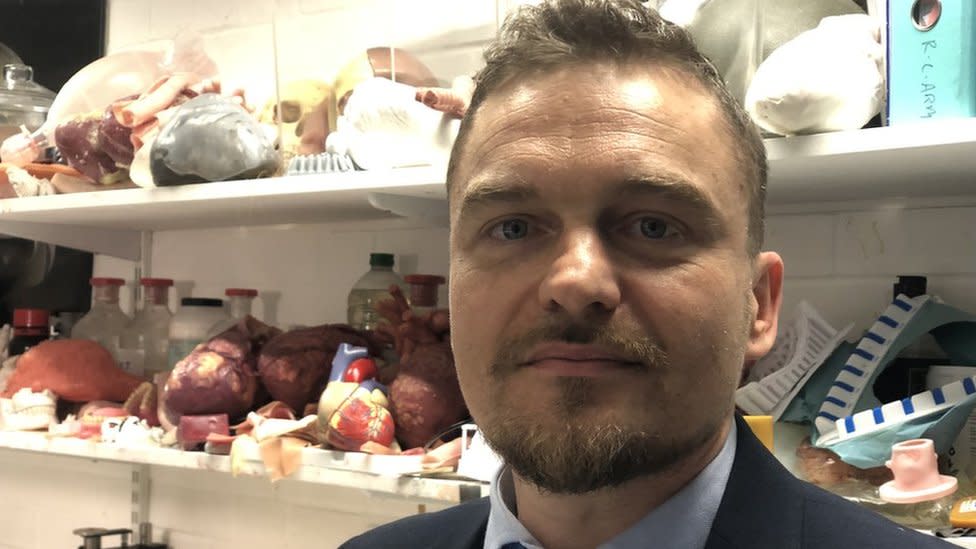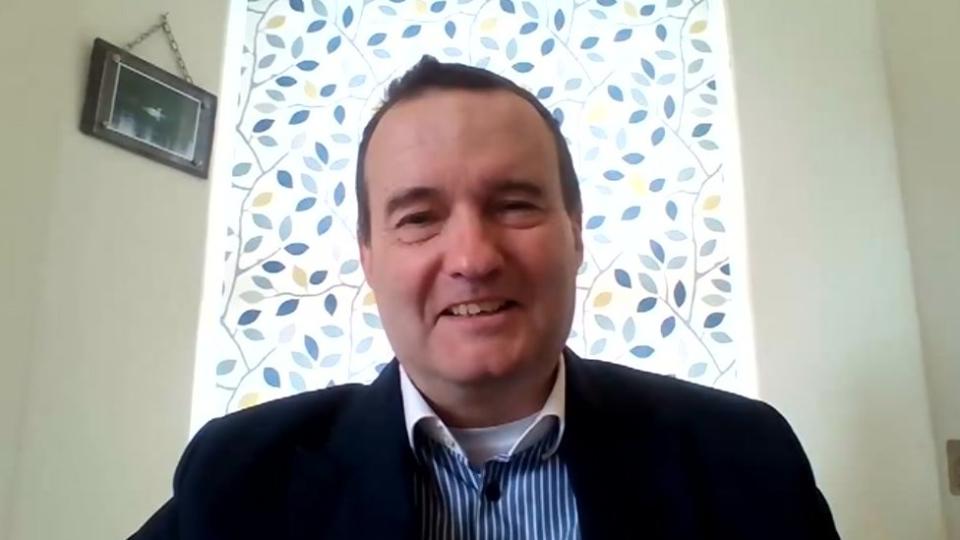Nottingham-made models of human organs used to train surgeons

Realistic 3D models of human organs made at a Nottingham university are being used to help train surgeons.
Richard Arm, a senior researcher at Nottingham Trent University's fashion department, uses data from real CT scans to create the models.
The military use them to train first responders to treat IED victims and gunshot wounds, he said.
Mr Arm's work has also been used as props by the independent horror film industry.

Explaining the process of creating the models, Mr Arm said: "We take that image [from the CT scan], then we 3D print those using different materials.
"We look at what the type of surgery and what the surgeon requires, then we'll look specifically at that area.
"We could do every blood vessel, organ, piece of anatomy in the body, but that would be expensive, so it's about making it cost effective."
Mr Arm said the Queen's Medical Centre, in Nottingham, requested a model to teach a patient-specific removal of a tumour in a child's liver in 2021.
"It was pretty difficult to get to, so they wanted a model they could teach and practice on before going into surgery," he said.
"Not only does it help the surgeon prepare for that particular case, but that model can then be used as a real case scenario to teach medical students about how to resect tumours."

Professor Peter Mahoney, a consultant anaesthetist, said what distinguishes Mr Arm's work is his understanding of anatomy.
He said there are many training scenarios where real human organs cannot and should not be used.
"So having a good, realistic simulated organ means you can have a much broader range of individuals who can train, but you can also train on a much broader range of scenarios," he added.
When serving in the military, Prof Mahoney said the project allowed his team to train surgeons in realistic field conditions.
Mr Arm has also helped the independent film industry by creating organ props for mainly horror films.
Prof Mahoney added: "The items he has produced have been extremely realistic and actually caused some consternation on film sets."
Follow BBC East Midlands on Facebook, on X, or on Instagram. Send your story ideas to eastmidsnews@bbc.co.uk or via WhatsApp on 0808 100 2210.

